Why Drain Odor Removal Matters for Every Homeowner
Unpleasant drain odors are more than just an annoyance; they signal underlying issues, making drain odor removal essential for a fresh, healthy home.
Quick Solutions for Common Drain Odors:
- Baking soda + vinegar method: Pour 1/2 cup baking soda, then 1 cup vinegar down the drain, wait 15 minutes, and flush with hot water.
- Boiling water flush: Pour slowly down the drain to dissolve grease and debris.
- Check your P-trap: Run water for 30 seconds to refill the water seal that blocks sewer gases.
- Clean garbage disposal: Use ice cubes and citrus peels to freshen and clean blades.
Most people ignore their drains until a foul smell appears. As one homeowner noted, "You come into the kitchen and stop short when something unpleasant assails your nose... the smell is coming from the kitchen sink drain."
The good news is that most odors stem from simple causes like food buildup, grease, or dry P-traps, which are often fixable with household items.
However, rotten egg or sewage smells can indicate serious plumbing problems. These sewer gases are not just unpleasant but can also pose health risks if ignored.
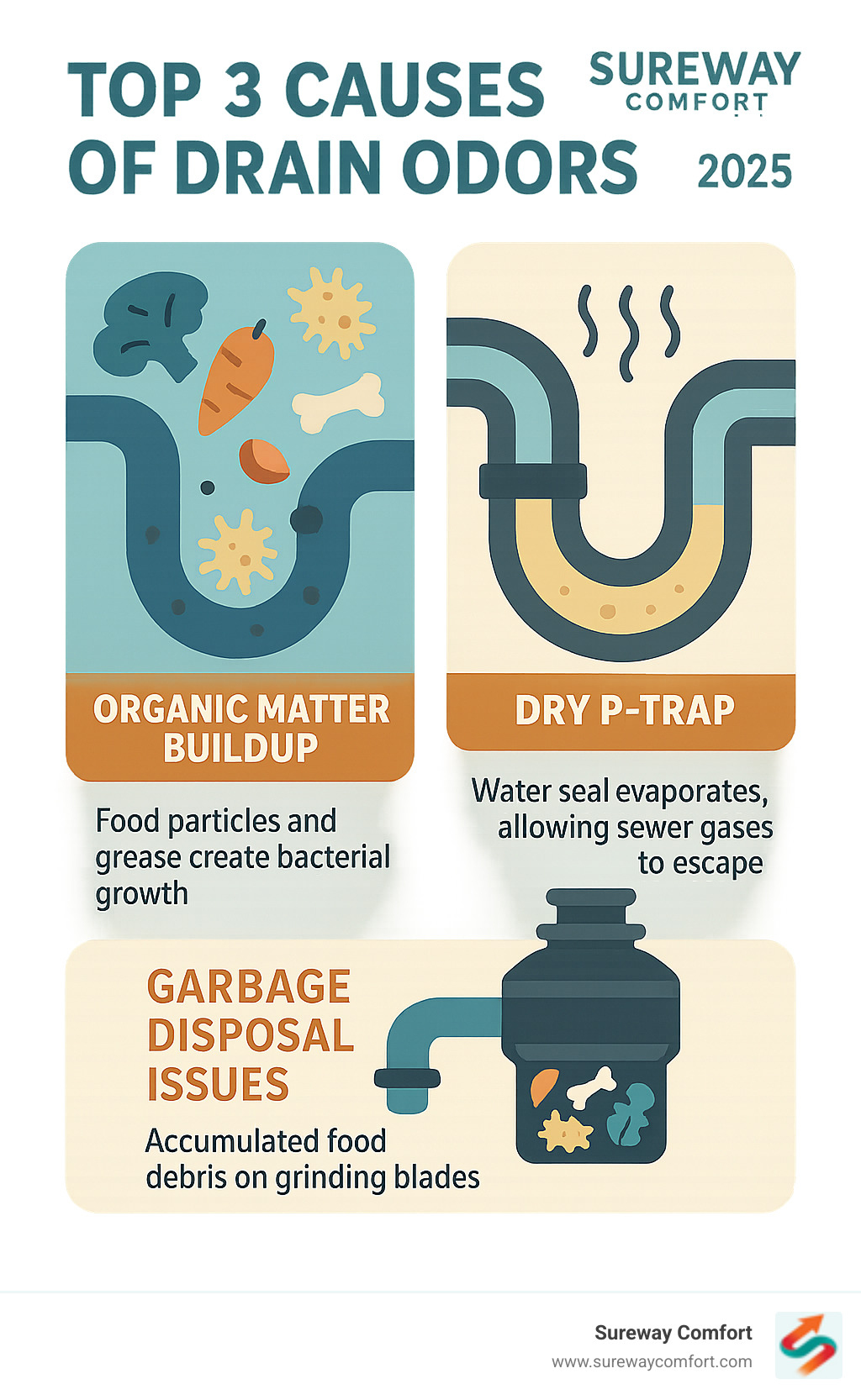
Drain odor removal glossary:
Why Your Drains Smell: Identifying the Source of the Stench
When an unpleasant smell from your sink greets you in the morning, drain odor removal becomes an urgent priority. Your drains are dark, warm, and wet—perfect for bacteria. When organic matter like food scraps, grease, and hair accumulates, bacteria decompose it, releasing foul-smelling sulfur compounds.
Grease buildup from cooking oils creates a sticky trap for debris. Food residue can linger in garbage disposals, while hair clogs and soap scum form a slimy biofilm that hosts mold and mildew. The longer this matter sits, the stronger the odors become.
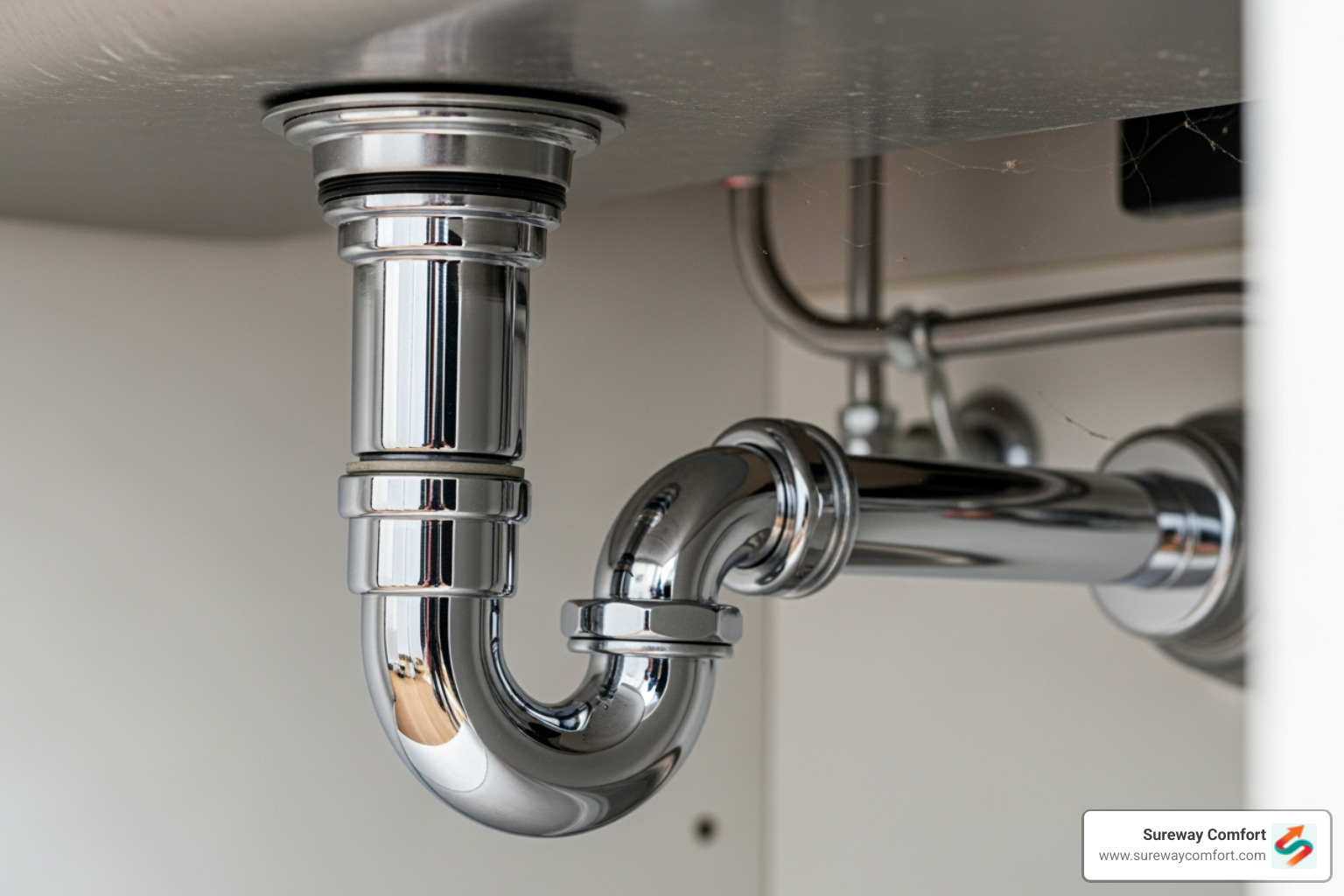
The P-Trap: Your First Line of Defense Against Odors
Meet the P-trap, the U-shaped pipe under every sink. It holds a small pool of water that creates a water seal, a barrier that blocks sewer gases from entering your home.
If a drain isn't used frequently, this water can evaporate, removing the protective barrier and allowing sewer gases a direct path into your living space.
Fortunately, this is often the simplest fix for drain odor removal. Just run water in the affected drain for about 30 seconds to refill the water seal.
For more complex kitchen sink issues that might be affecting your drains, check out our guide on Kitchen Sink Drain Problems Solutions.
Kitchen vs. Bathroom: Location-Specific Causes
Not all drain odors are the same. Your kitchen drains and bathroom drains have unique problems based on what goes down them.
Kitchen drains collect food particles, grease, fats, and oils from meal prep. This combination creates a sticky, smelly buildup inside your pipes. In garbage disposals, food debris can cling to the grinding blades and walls, causing odors if not flushed properly.
Bathroom drains face different challenges. Hair is the main culprit, combining with soap scum and body oils to form a slimy biofilm that bacteria love.
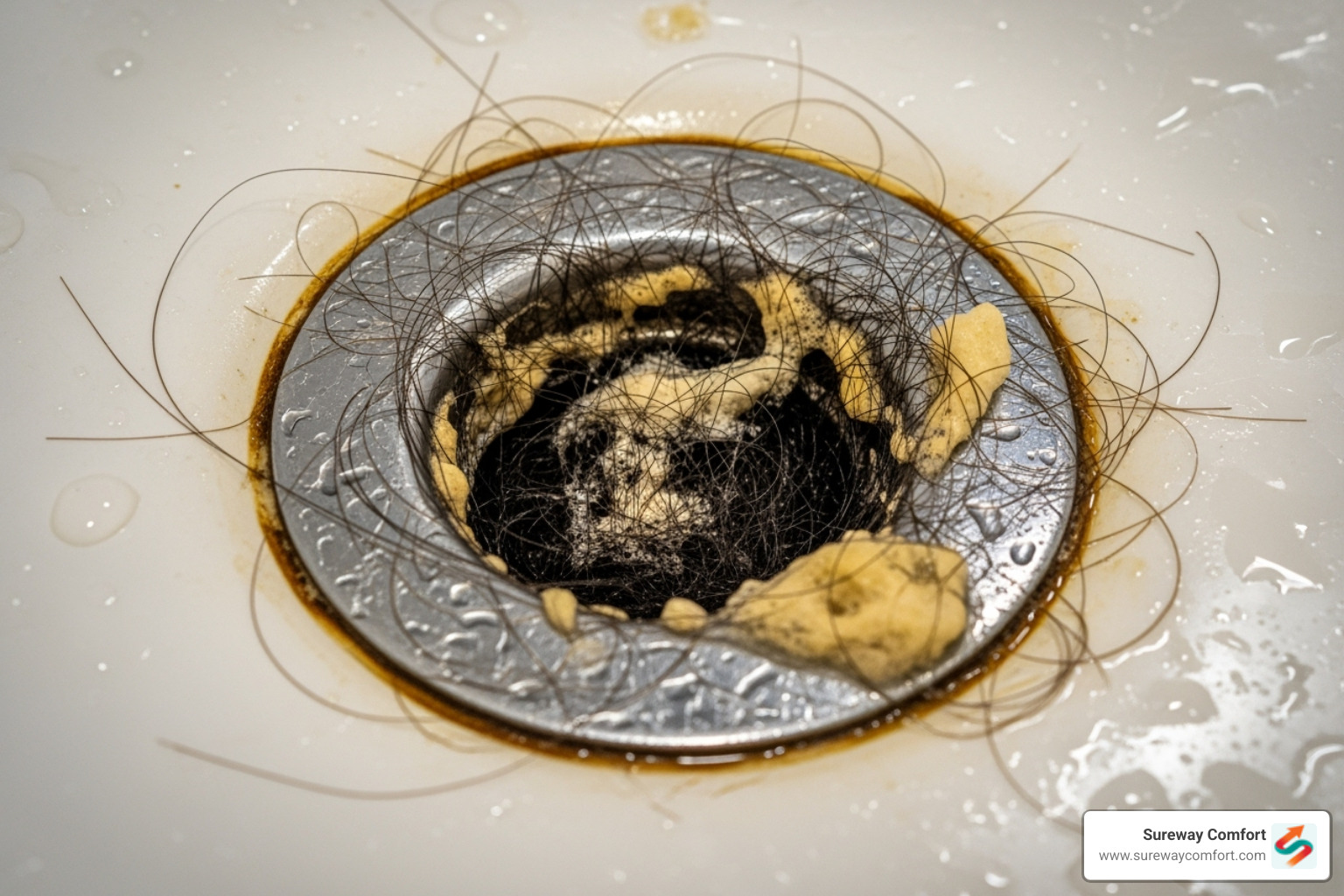
Serious Signs: Sewer Gas and Venting Problems
A persistent rotten egg smell is a red flag. It often indicates sewer gas, a more serious problem. Sewer gas contains methane and hydrogen sulfide, which can cause health risks like headaches and nausea.
The issue could be with your plumbing vents—pipes that run through your roof to let sewer gases escape. When vents get clogged with debris, the gases can back up into your home.
Main sewer line issues like blockages or cracks can also send sewer gases into your drains. These are not DIY fixes and require professional attention to protect your home and health.
If you're smelling something that reminds you of rotten eggs or sewage, don't ignore it. For additional guidance on tackling persistent drain odors, you can reference What to do about that stinky drain.
Your Step-by-Step Guide to DIY Drain Odor Removal
Most drain odor removal tasks can be handled with simple pantry ingredients like baking soda, vinegar, and boiling water. Before you start, gather your supplies: baking soda, white vinegar, boiling water, rubber gloves, and a drain brush or old toothbrush.
Method 1: The Baking Soda and Vinegar Fizz
This classic combination is an effective, natural way to clean drains. The fizzing reaction breaks down organic buildup and deodorizes pipes.
First, clear any visible debris from the drain opening (use gloves!). Pour about half a cup of baking soda directly down the drain.
Next, slowly pour one cup of white vinegar down the drain. The bubbling action will loosen grime and neutralize odors. Cover the drain to contain the reaction and let it sit for 15 to 30 minutes.
Finally, flush everything away with very hot water for several minutes to wash away the loosened debris.
Method 2: The Boiling Water Flush
A simple boiling water flush is brilliant for kitchen drains. The heat effectively melts greasy buildup that cooler water leaves behind.
Bring a large pot of water to a boil. Clear any debris from the drain opening. Pour the boiling water slowly and in stages to give it time to work without dangerous splash-back.
Important note about PVC pipes: If you have PVC plumbing, let boiling water cool slightly before pouring, or use very hot tap water instead. Extreme heat can damage these pipes.
This method works well as a first step or after the baking soda and vinegar treatment. For more comprehensive solutions, see our guide on How to Fix a Clogged Drain.
Method 3: How to Clean a Smelly Garbage Disposal
Garbage disposals are common odor sources due to food debris clinging to the blades. Luckily, cleaning them is easy and doesn't require harsh chemicals.
Start by running a steady stream of cold water. Drop a handful of ice cubes into the disposal; the ice acts as a natural scrubber. For extra power, add a tablespoon of coarse salt.
Next, toss in a few citrus peels (lemon, lime, or orange). The natural acids sanitize while the oils leave a fresh scent. Turn on the disposal with the cold water running until everything is ground up.
Keep the water running for another 30 seconds to flush all debris away. For more tips, our article on Kitchen Sink Backing Up Solutions has you covered.
Best Practices for Prevention and Maintenance
The secret to successful drain odor removal is prevention. Like car care, regular maintenance helps avoid bigger problems. Keeping drains fresh is simple with a few daily habits and a basic routine.
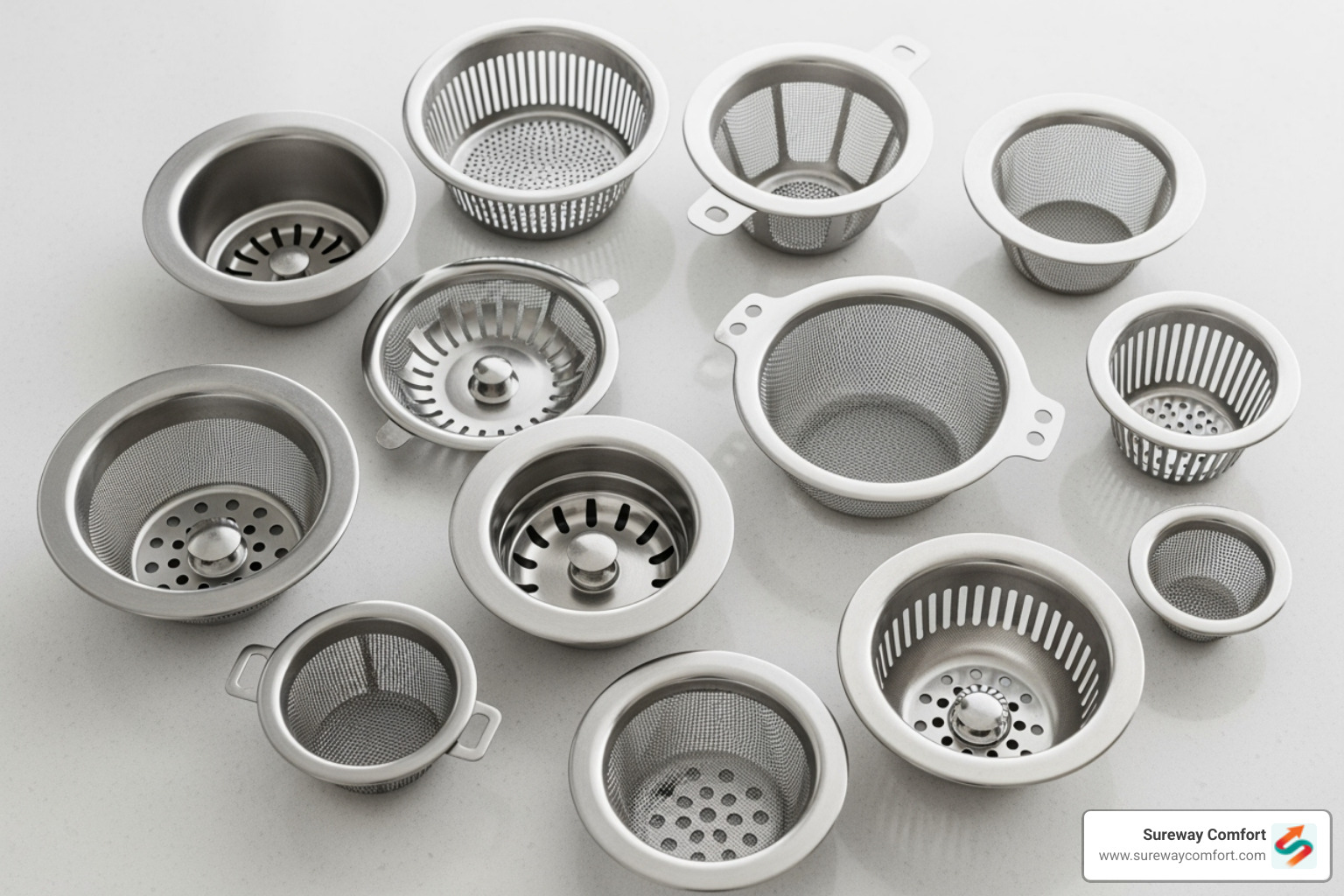
Choosing the Right Cleaner: Natural vs. Chemical
When choosing a drain cleaner, stronger isn't always better. Natural cleaners like baking soda and vinegar are best for regular maintenance. Enzymatic cleaners are another great option; they use beneficial bacteria to "eat" the organic matter causing odors and are safe for all pipes.
Harsh chemical cleaners can create more problems than they solve. Bleach, for example, can corrode pipes over time and create toxic fumes when mixed with other substances, including the organic waste in your drain.
If you must disinfect a drain, follow proper safety guidelines like those in this resource on How to Disinfect a Drain safely.
Creating a Simple Drain Maintenance Routine
The best maintenance routines are simple and easy to follow.
- Weekly hot water flushes: Run very hot tap water down all your drains for a few minutes to wash away minor buildup.
- Monthly deep cleaning: Use the baking soda and vinegar method on your high-use drains, like the kitchen sink, to keep bacteria from taking hold.
- Visible parts: Scrub the drain opening and stopper with an old toothbrush and soapy water to prevent surface grime and mold.
Smart Habits to Prevent Future Odors
Small changes in your daily routine can prevent most drain odor problems.
- Scrape plates thoroughly before washing to keep food scraps out of your pipes.
- Use drain strainers to catch hair and food particles before they go down the drain.
- Never pour grease down any drain. Let it cool and solidify in a container, then throw it in the trash.
- Run water in unused drains once a week to keep the P-trap's water seal from evaporating. For floor drains, a cup of vegetable oil can create a longer-lasting seal.
When to Call a Professional for Stubborn Drain Odors
If DIY methods fail and stubborn drain odors persist, it's time to call a professional. A recurring smell often signals a deeper plumbing issue that requires specialized tools and expertise. Ignoring these warning signs can lead to more expensive problems.
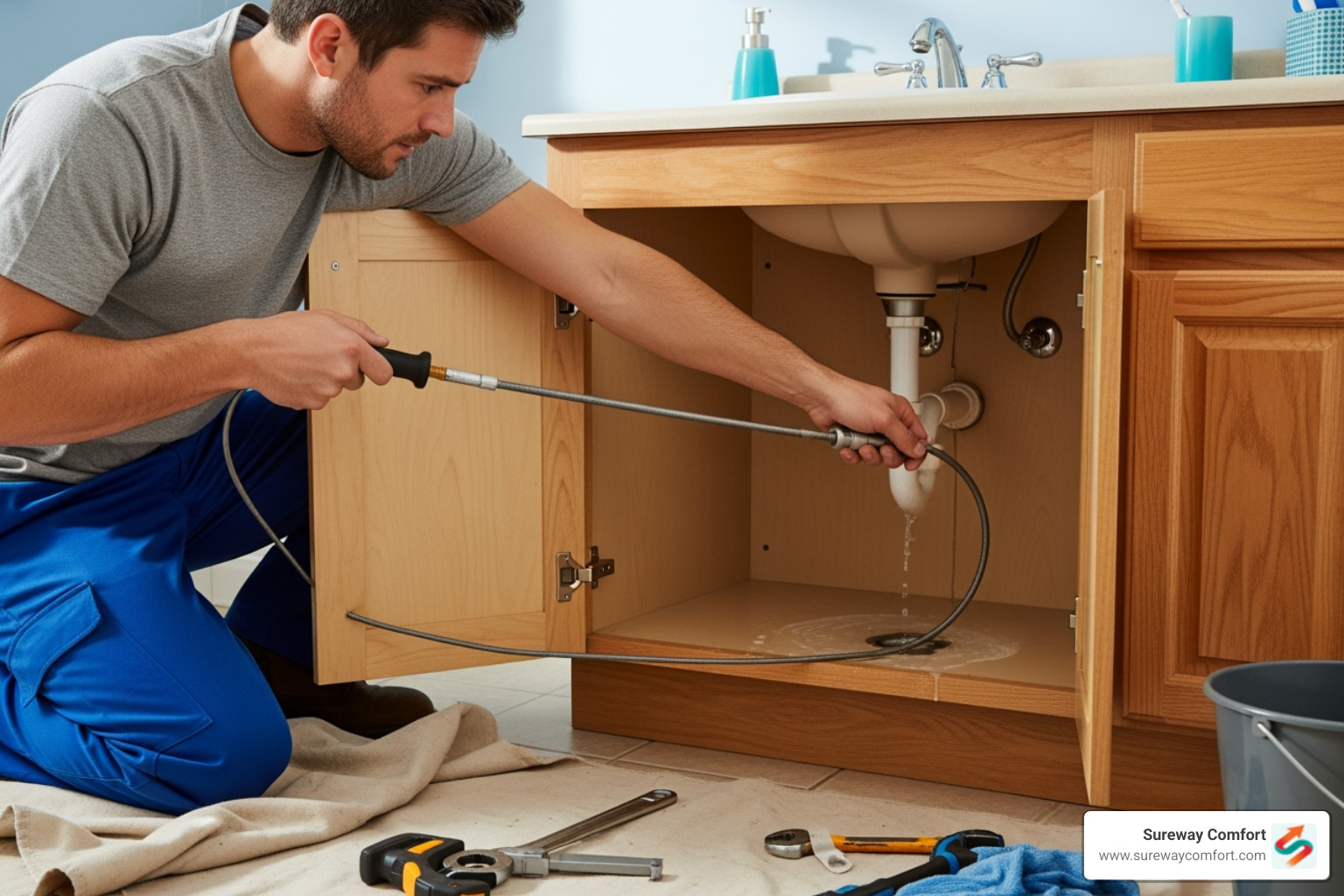
Warning Signs That DIY Isn't Working
Listen to your drains. These signs indicate you need professional help:
- Recurring odors: The smell returns shortly after cleaning, pointing to a deeper buildup or structural issue.
- Multiple slow drains: If several drains are sluggish, the problem is likely in your main sewer line.
- Gurgling sounds: These noises often indicate venting issues or a partial blockage deep in the system.
- Water backups: Any water backing up into sinks or tubs means a significant clog needs immediate attention.
- Sewer smell: A persistent rotten egg odor throughout the house could mean main sewer line or venting problems that pose health risks.
If you're in the Mt. Lebanon area and notice these signs, don't wait. Learn more in our guide on Clogged Drain Mt Lebanon PA.
What to Expect from a Professional Drain Cleaning Service
When you call Sureway Comfort, our technicians use professional tools and techniques. We start with a thorough plumbing inspection to find the root cause, not just mask the symptoms.
Our professional diagnosis may involve:
- Drain snaking: Using professional-grade equipment to break apart or retrieve stubborn blockages deep within your pipes.
- Hydro jetting: A powerful method using high-pressure water to scour pipes clean of severe blockages and buildup.
- Camera inspection: Sending a small camera down your pipes to get a visual of cracks, tree root intrusions, or other structural issues.
Our process ensures you get lasting solutions. To learn more about our approach, read our guide on How Professionals Handle Clogged Drains.
Frequently Asked Questions about Drain Odor Removal
Here are answers to the most common questions we receive about drain odor removal.
How do you get the rotten egg smell out of a drain?
The rotten egg smell is hydrogen sulfide gas, created by bacteria feasting on organic matter like hair and soap scum in your pipes. This forms a slimy, odor-causing biofilm.
First, check your P-trap by running water for a minute to ensure it hasn't dried out. Next, use the baking soda and vinegar method to break down the biofilm. For bathroom drains, you may need to manually remove hair and gunk from the drain opening with a drain snake or bent coat hanger.
If the smell persists, the issue could be more serious, like a problem with your main sewer line, and it's time to call a professional.
Can I use bleach to clean a smelly drain?
While bleach kills bacteria, we don't recommend it for drain odor removal. Bleach is highly corrosive and can damage your plumbing over time. More importantly, mixing it with other cleaners or organic waste in the drain can create dangerous toxic fumes.
Bleach also doesn't solve the root problem, as it won't break down the physical clogs (like hair and grease) that feed the bacteria. Stick with safer, more effective alternatives like enzymatic cleaners or the baking soda and vinegar method.
How often should I clean my drains to prevent odors?
Regular maintenance is key. A little effort now prevents major issues later.
- Weekly: Flush high-use drains (kitchen, main bathroom) with very hot tap water for a few minutes to wash away minor buildup.
- Monthly: Give your busiest drains a deep clean with the baking soda and vinegar method to neutralize odors and prevent bacteria growth.
- As needed: Run water through low-use drains in guest bathrooms or utility rooms every few weeks to keep the P-trap full.
For a proactive approach, especially in older homes, consider an annual professional cleaning and inspection. Consistency is the best way to prevent a stinky drain situation.
Conclusion
Taking control of drain odor removal makes your home more pleasant. We've shown that most drain odors stem from common issues like organic matter buildup, dry P-traps, or dirty garbage disposals, most of which have simple DIY solutions.
The beauty of drain odor removal is its simplicity. Using pantry staples like baking soda, vinegar, and hot water, you can effectively break down odor-causing gunk and restore freshness to your drains.
However, the real secret is prevention. By scraping plates, using drain strainers, and never pouring grease down the sink, you can achieve long-term success. A weekly hot water flush and a monthly baking soda treatment will keep most drains fresh.
Of course, sometimes DIY methods aren't enough. If you're facing persistent smells, multiple slow drains, gurgling sounds, or water backups, it's time to call in the professionals. These signs often point to deeper issues that require tools like drain snakes, hydro jetting, or camera inspections.
That's where our team at Sureway Comfort comes in. We help homeowners throughout Bridgeville, South Fayette, Upper St. Clair, Mt. Lebanon, McDonald, Scott Township, Canonsburg, and Bethel Park, PA, tackle their toughest plumbing challenges. Our experienced technicians provide effective solutions without the runaround.
Don't let stubborn drain odors linger. For professional drain cleaning and plumbing services in the Mt. Lebanon area, contact us today! Your nose will thank you.



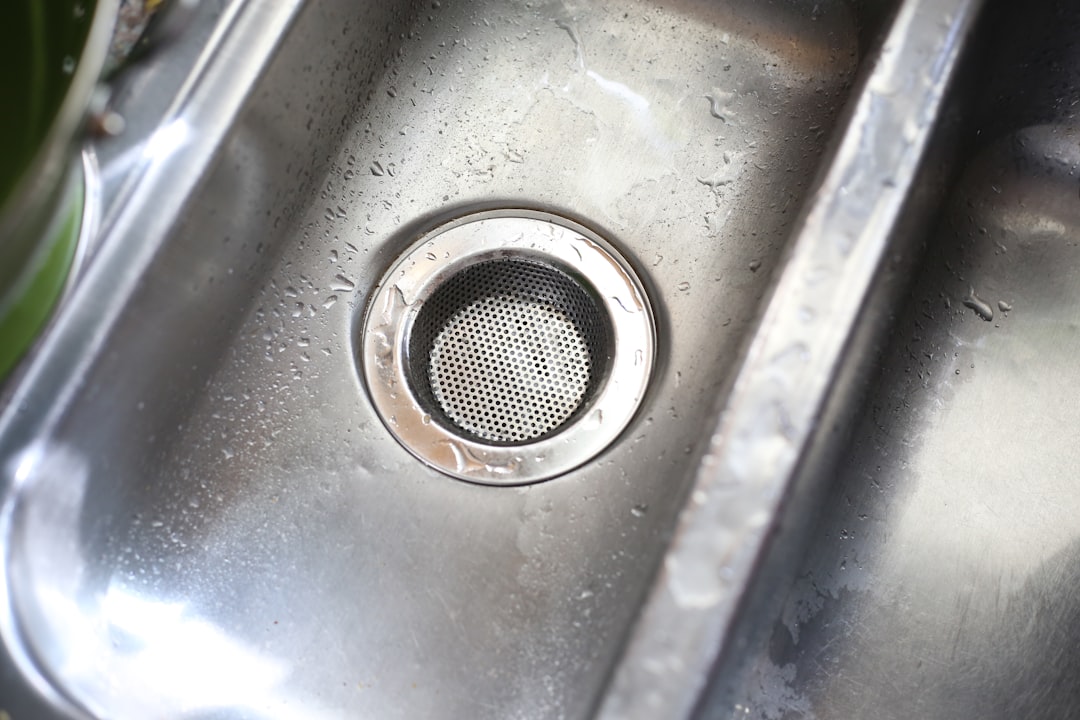
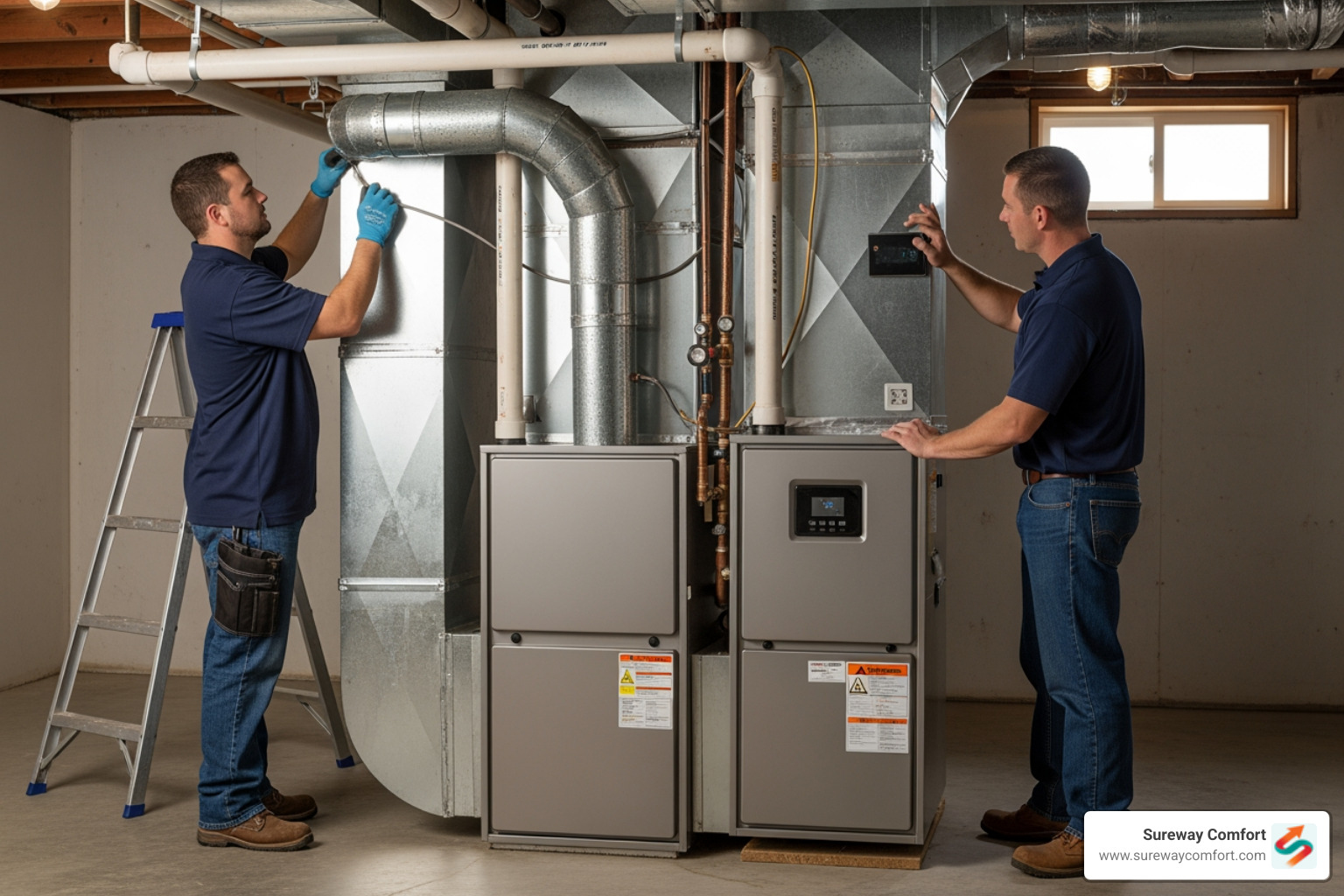

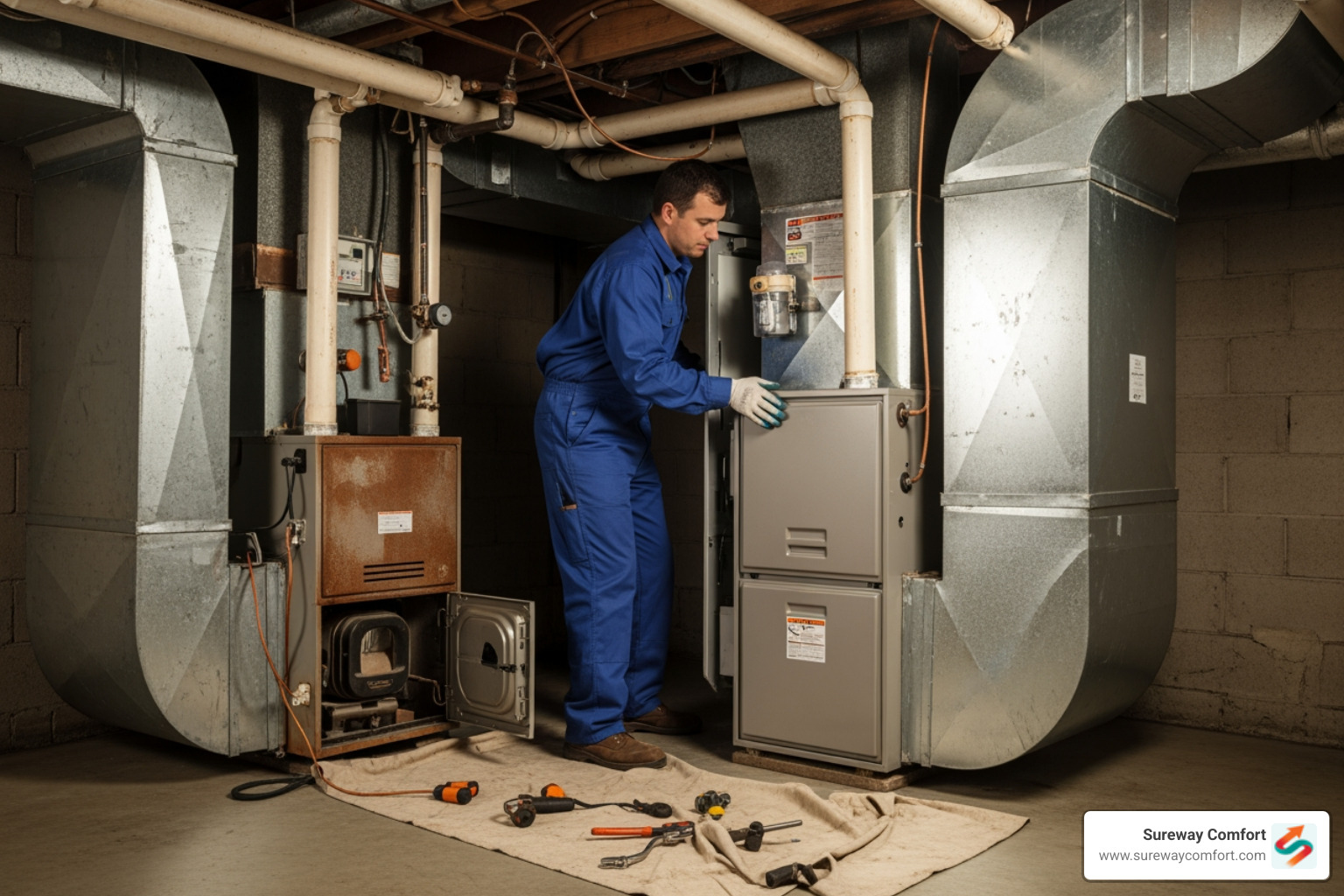
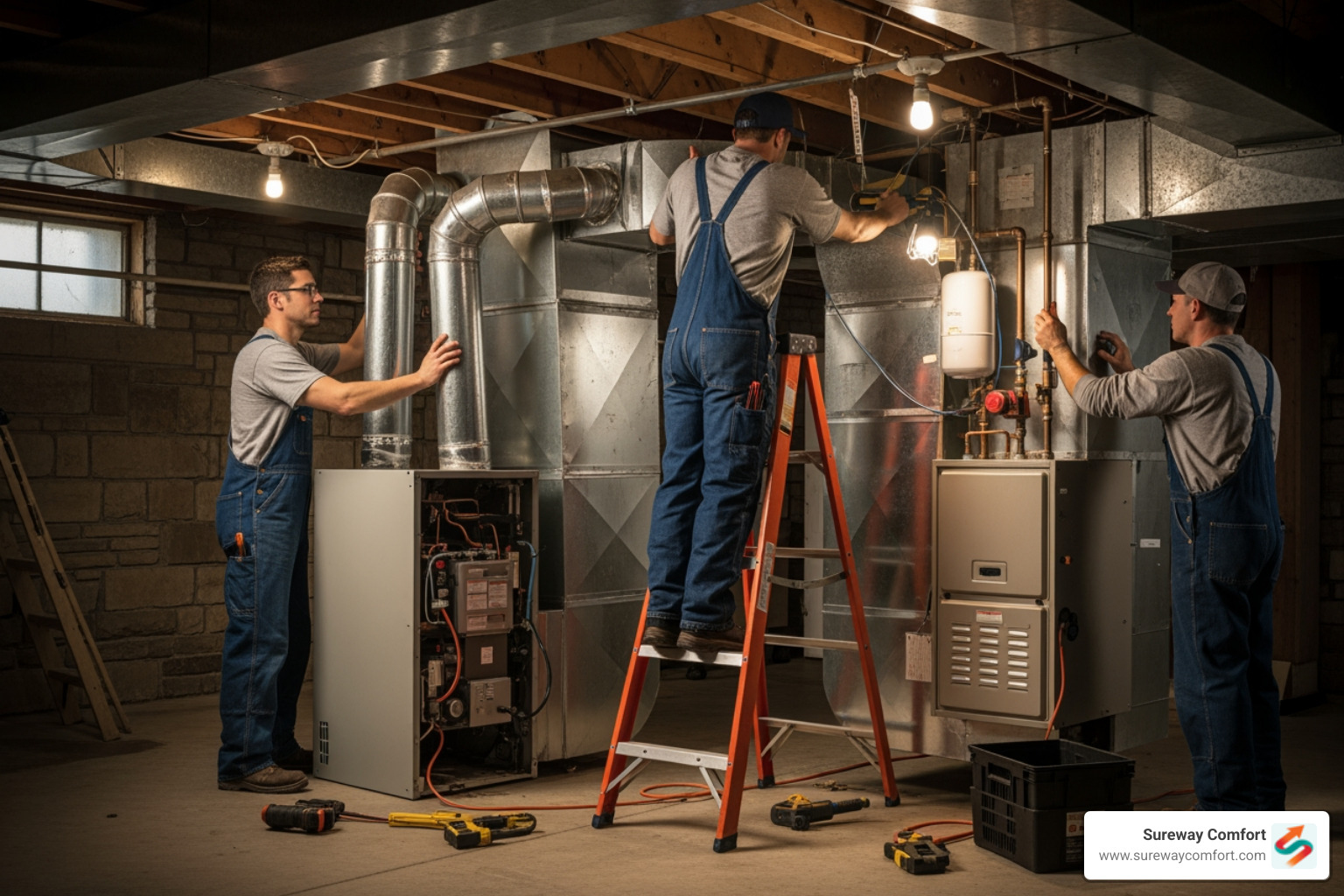




















.avif)



